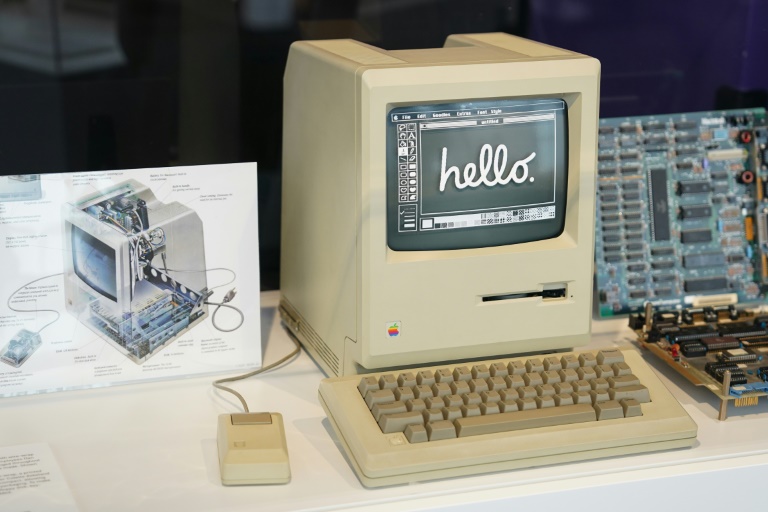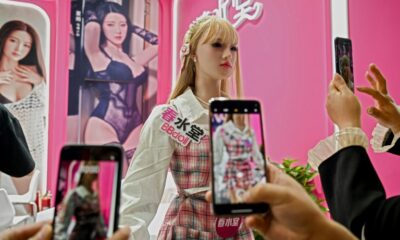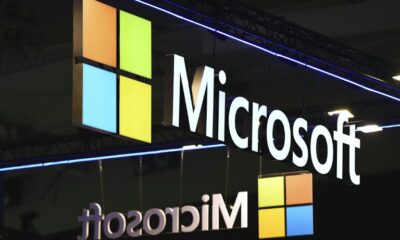Forty years after igniting a PC revolution, Apple’s Mac is stronger than ever and could reach new glory due to AI computing — or be left behind.
Apple launched the Macintosh in 1984 with a history-making television ad pitching the machine as an anti-establishment blow against a dystopian future.
The computer, referred to simply as a Mac, won fans with user-friendly features such as a graphical interface, clickable icons, and a mouse.
“The influence of the Mac is massive,” Futurum Group research director Olivier Blanchard told AFP.
“Every laptop and every PC (personal computer) has tried to emulate the Mac and its success.”
Macs became the preferred choice for Apple fans along with artists, film makers and other creative professionals.
Windows-powered computers, however, dominated business workplaces with lower cost machines that synced with ubiquitous productivity tools like data-bases or spreadsheets made by Microsoft and others.
More recently, Apple has been making inroads in business, getting help from iPhone lovers using their smartphones for work and Macs becoming more compatible with programs used on the job.
The Mac’s market has expanded to “basically everyone,” Dag Spicer, senior curator at the Silicon Valley Computer History Museum, told AFP at an exhibit to mark its anniversary.
“A lot of the advertising and marketing is directed at making people feel special for buying a Mac,” Spicer said.
“You know — be a rebel, be an outsider, fight the system, even from the first 1984 ad.”
Even Apple’s soon to be released “spacial computing” headgear, the Vision Pro, plays up work-related uses — and its compatibility with the Mac.
“Apple is doing more to get into businesses,” said Creative Strategies analyst Carolina Milanesi.
“It is clear that with Vision Pro they want to get into the enterprise space, and they linked the Vision Pro to the Mac.”
– AI PC Age –
The Mac’s 40th birthday comes when the global PC market has sagged with the rise of smartphone lifestyles.
But it is being reinvigorated by remote work trends as well as keen interest in upgrading to machines tuned to handle AI computing, according to analysts.
The PC market for years now has been iterative, with incremental improvements that weren’t sexy and gave users little reason to upgrade, according to Blanchard.
“AI is a once-in-a-generation change in the PC market,” Blanchard told AFP.
“PCs are about to become much more powerful and easier to use, putting generative AI capabilities we saw out in the cloud right on the PC.”
Blanchard likened the change to suddenly having a team of experts on your computer to help with whatever is being worked on.
Data used for AI will remain on PCs, keeping it protected and saving cloud computing costs, he added.
– AI Mac? –
PCs with the muscle to handle AI workloads on device will tap into a hot trend people are keen to exploit, and Apple has already taken to designing its own custom chips, the analyst noted.
“Just because Apple doesn’t talk about generative AI, don’t think they are not going to be playing in that space,” Milanesi said.
Apple is expected to put its spin on AI computing the same way it put its world-changing spin on the smartphone.
Apple already uses AI in its camera, Siri digital assistant and more.
While Apple appears to be lagging behind in the AI race, it is likely quietly designing its own computer chip for “AI Macs,” according to analysts.
The overall PC market and Mac’s share of it are poised to grow, even though Apple machines are at the high end of the price range, according to Milanesi.
“There is definitely more opportunity for Apple than people give them credit for,” Milanesi said.
When an AI Mac arrives, expect it to be tied to Apple’s “ecosystem” where Apple can control experiences and make money from offerings, according to analysts.
“If Mac doesn’t become an AI Mac in the next year, Apple will be facing some questions,” Blanchard said, adding he believes Apple will play a unique role in the market.
“AI is literally everything; Apple can’t get around that.”

 Business4 months ago
Business4 months ago
 Business5 months ago
Business5 months ago
 Events3 months ago
Events3 months ago
 People4 months ago
People4 months ago
 Events6 months ago
Events6 months ago
















